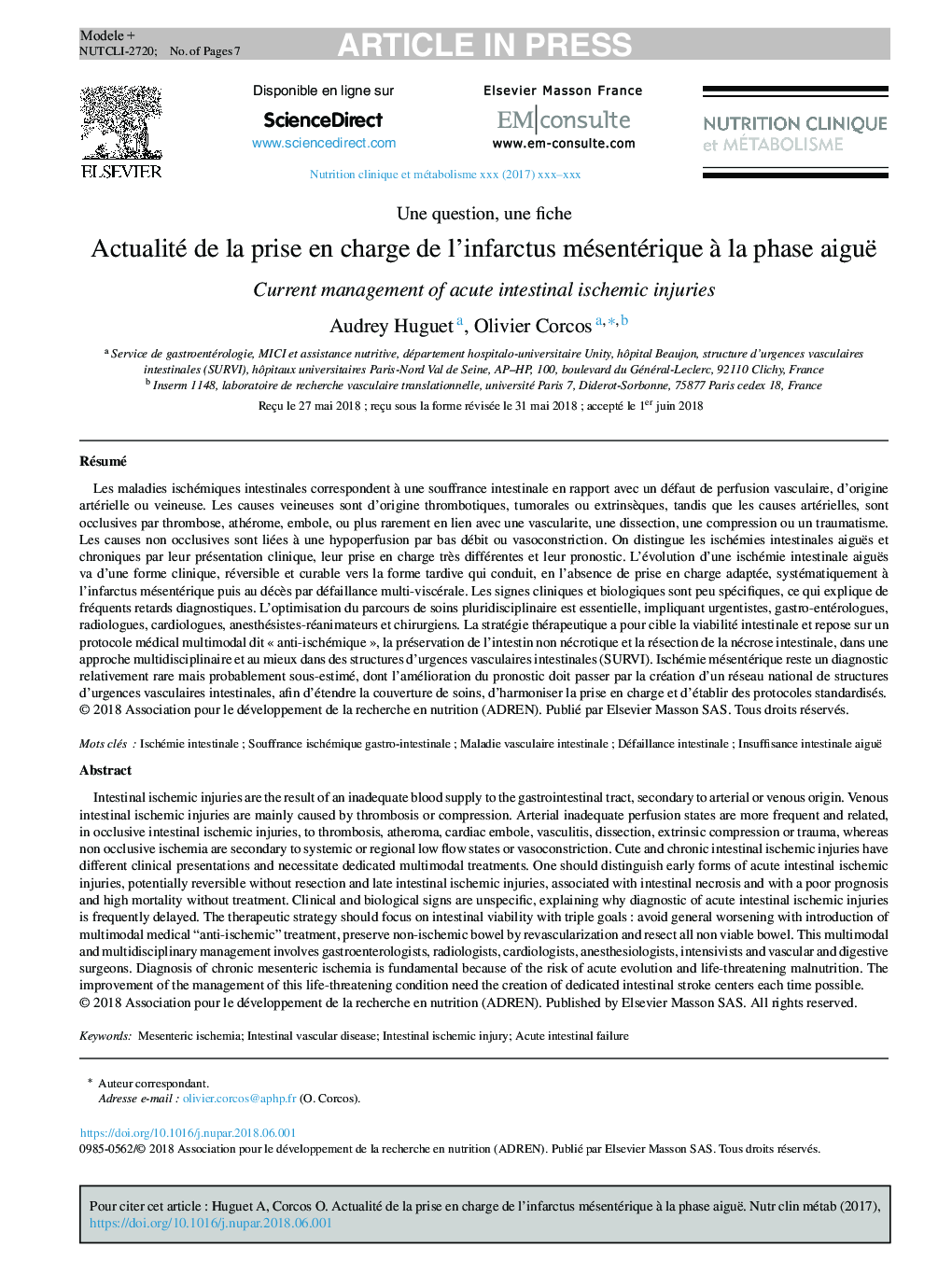| Article ID | Journal | Published Year | Pages | File Type |
|---|---|---|---|---|
| 11019222 | Nutrition Clinique et Métabolisme | 2018 | 7 Pages |
Abstract
Intestinal ischemic injuries are the result of an inadequate blood supply to the gastrointestinal tract, secondary to arterial or venous origin. Venous intestinal ischemic injuries are mainly caused by thrombosis or compression. Arterial inadequate perfusion states are more frequent and related, in occlusive intestinal ischemic injuries, to thrombosis, atheroma, cardiac embole, vasculitis, dissection, extrinsic compression or trauma, whereas non occlusive ischemia are secondary to systemic or regional low flow states or vasoconstriction. Cute and chronic intestinal ischemic injuries have different clinical presentations and necessitate dedicated multimodal treatments. One should distinguish early forms of acute intestinal ischemic injuries, potentially reversible without resection and late intestinal ischemic injuries, associated with intestinal necrosis and with a poor prognosis and high mortality without treatment. Clinical and biological signs are unspecific, explaining why diagnostic of acute intestinal ischemic injuries is frequently delayed. The therapeutic strategy should focus on intestinal viability with triple goals : avoid general worsening with introduction of multimodal medical “anti-ischemic” treatment, preserve non-ischemic bowel by revascularization and resect all non viable bowel. This multimodal and multidisciplinary management involves gastroenterologists, radiologists, cardiologists, anesthesiologists, intensivists and vascular and digestive surgeons. Diagnosis of chronic mesenteric ischemia is fundamental because of the risk of acute evolution and life-threatening malnutrition. The improvement of the management of this life-threatening condition need the creation of dedicated intestinal stroke centers each time possible.
Related Topics
Health Sciences
Medicine and Dentistry
Gastroenterology
Authors
Audrey Huguet, Olivier Corcos,
